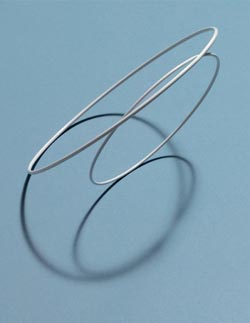Interview: Frank Pavich, Director of Jodorowsky’s Dune
The filmmaker on his breakout documentary, about one of the greatest movies never made

by Charlotte Anderson
Some 10 years before David Lynch’s 1984 adaptation of the popular science fiction novel “Dune” by Frank Herbert, Chilean-French filmmaker (and icon) Alejandro Jodorowsky was already penning his own screenplay. His goal was ambitious: to create a philosophically minded, aesthetically surreal, space-epic the likes of which had never, ever been seen. And in 1974, after the wild success of “El Topo” and “The Holy Mountain,” Jodorowsky was ready to embark on his mission.
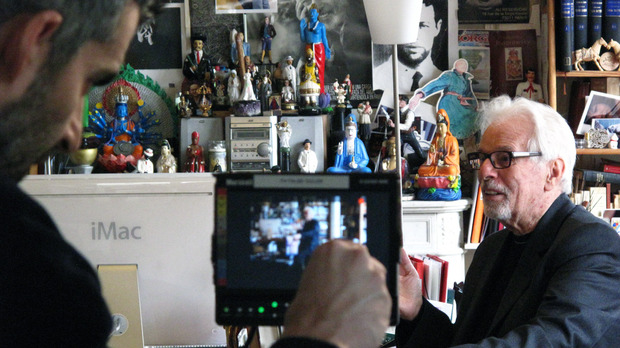
Jodorowsky’s script was the size of a phone book, populated by a range of alien races, creatures and environments. He amassed a production crew and cast that would have rattled the film industry if not the world. Salvador Dali was to play the emperor of the universe; an aging Orson Welles, the villainous leader of Planet Harkonnen. Artist HR Giger, French illustrator Moebius, Chris Foss, Dan O’Bannon, Pink Floyd and Mick Jagger all agreed to take part in the project. It took two years to craft the world of “Dune.” But the film never reached theaters; it never even reached the later stages of production. With over 3,000 storyboards, an enormous script and most of the design elements complete, Jodorowksy and his producer Michel Seydoux approached studios only to find a complete lack of financial support. No one was interested in a 14-hour mystic space movie.
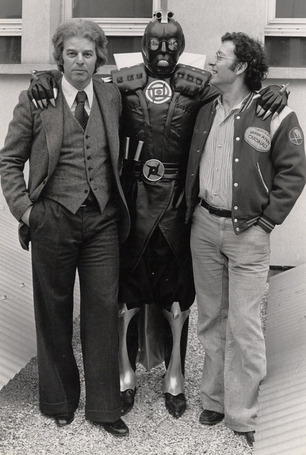
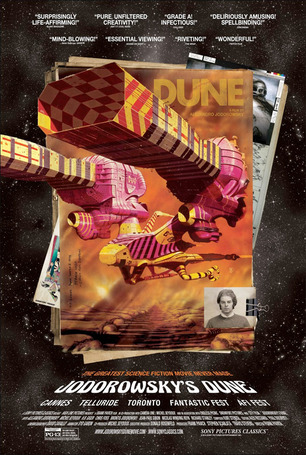
This is the captivating story of “Jodorowsky’s Dune,” a new documentary opening in several cities this month. A good work of art lures viewers toward places they have no business going, inculcates them into a visceral truth and forces them to see the world in a radically different light. The truth that “Jodorowsky’s Dune” reveals is that the act of making art necessitates ambition and addiction together. Art is its own drug.
Dali as an actor, Pink Floyd doing your soundtrack, Magma doing your soundtrack—these are completely out-there ideas.
The talented first-time director Frank Pavich took time to speak with CH about his breakout documentary “Jodorowsky’s Dune,” the nature of artistic pursuit and the remarkable Jodorowsky himself.
What compelled you to pursue this story?
I’ve been a fan of Jodorowsky’s for years—even back in the days when the only way to see his films was on a sixth generation bootleg VHS with smear lines all over the screen, or a Japanese Laserdisc. So when the films finally became available on DVD and started screening at midnight showings, that’s when you could really see the beauty of them and feel the spiritual power they have. Being a fan of his for so long and then learning about this film was out of control—to think that this guy was supposed to make “Dune” before David Lynch? It’s insane.

How did you first get in touch with him?
Totally out of the blue. I didn’t have any connection to Jodorowsky. I just started searching around and found that he had an agent in Spain. So I sent her an email asking if I could speak with him about possibly telling the story of “Dune.” A few weeks later I woke up one morning and there was an unread email message from him. It was terrifying; I didn’t want to open it. I left it unread for a week because it could have destroyed my dream. Then I finally opened the email. It was a short message from him: “I hear you’re looking for me. I live in Paris and if you want to speak to me about this project you need to come to Paris and we need to meet face-to-face.”
So I went to Paris, and that’s how it was: completely out of the blue. But it fits! It fits that Jodorowsk-ian universe.
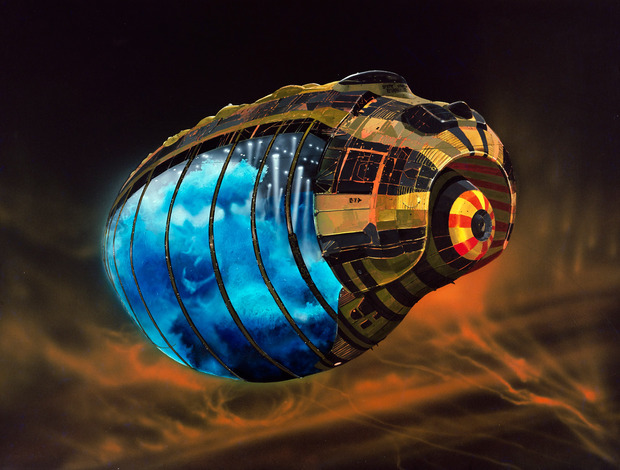
The making of “Dune” was really based on a series of chance encounters between Jodorowsky and these artists that had never done anything in film before.
And that was part of his genius. He didn’t choose people who spent their careers making films and had been proven. Giger had never worked on a film, Chris Foss never worked on a film, Moebius never worked on a film. Dali as an actor, Pink Floyd doing your soundtrack, Magma doing your soundtrack—these are completely out-there ideas. And his “spiritual warriors” (as he calls them) went on to have spectacular film careers and really changed the landscape of cinema. He knows how to pick them.
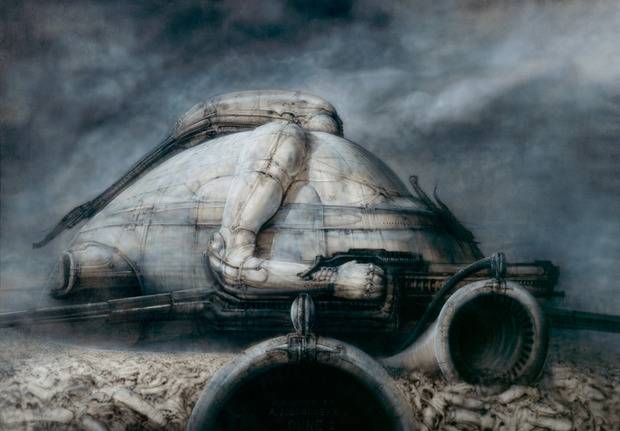
The documentary is pieced together through the art of interview––the collective story that is “Jodorowsky’s Dune.” Were you at all worried about doing justice to this narrative while parsing so many different perspectives?
It was definitely challenging. In the planning phases we were certain there was an archive with a million photographs and screen tests. We soon realized there was really nothing except the stories and the artwork. The more time you spend with Jodorowsky the more you see what a great storyteller he is. He’s a master. So we decided to allow him to just tell his story, animate the artwork without over doing it, and allow the viewer’s imagination to do the rest. “Jodorowsky’s Dune” is the greatest movie never made because it’s the movie that exists in his head, in your head and in mine.
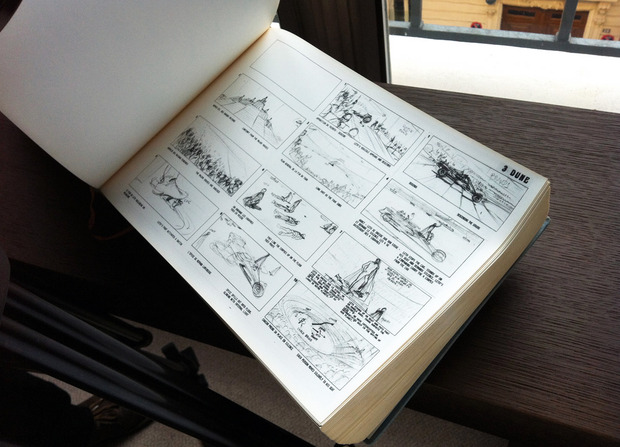
The fact that the film never came to fruition is not a disappointment then?
If you ask him, he feels that he did complete the film. He crafted every scene from the first to the last, every bit of dialogue, every camera movement, every ship, and every bit of clothing. That was the hard part, the easy part is to go do it. He created his ideas and put them out into the world, so he feels that it’s done. He talks about how dense the screenplay is: like reading Proust in space.
It’s not a documentary simply about this movie that was never made. It’s more about ambition—it doesn’t matter if you fail; that’s not the point. Go out of your way and see what you can do. The film’s not really a failure if you look at it. It would have been a failure had they gotten to the shooting stage and couldn’t finish it. “Dune” ended at exactly the right time. So, depending on how you look at it, the film is exactly how it was meant to be.
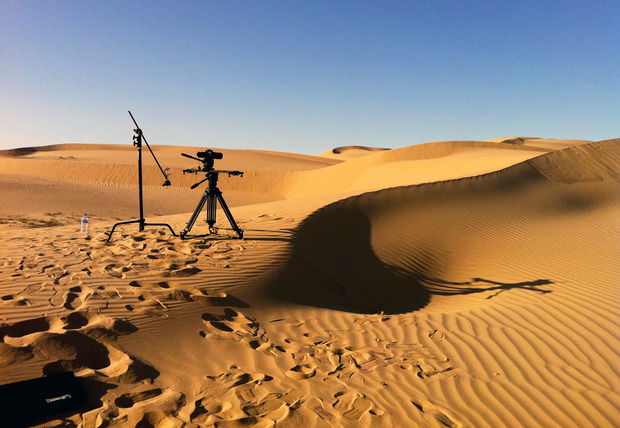
Thematically your documentary shares many similarities with “The Holy Mountain”— structured around the gathering of creative forces in pursuit of a singular cause. Is this intentional?
One of the greatest things to me is that you know “The Holy Mountain.” It literally finishes on top of the world—on top of this mountain. In the documentary at the moment Jodorowsky completes “The Holy Mountain,” he says: “And then my ambition grew.” That’s crazy to me. Where could you possibly go? What could you possibly do? I guess the next thing for him to do at that moment was space. He had his spiritual warriors and I had my spiritual warriors. To make a movie like this, it’s not about the paycheck for anybody—there is no paycheck. You do it for the love of the project, for the love of the relationships. My editor, my VP, my animator, my composer—those are my spiritual warriors.
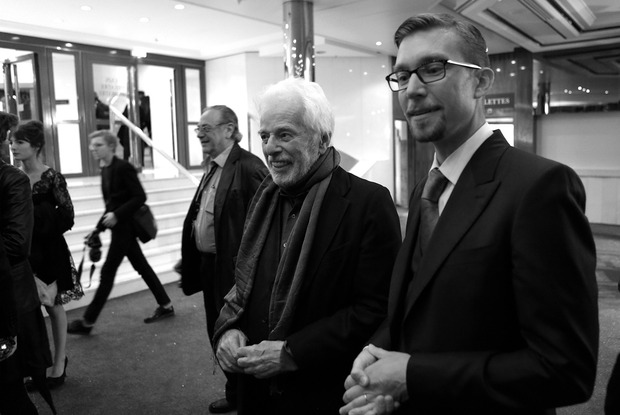
He really has this ideology that you’ve been given a gift. You are an artist. Do not sell it. Do it to change people, to make life better.
So, what’s next?
There are always more projects, but I know it’s got to be something to make Jodorowsky proud. What’s so interesting about him and his career is that he’s never done anything that he didn’t believe in. He never sold out. He’s never directed an episode of CSI Miami. He never directed a commercial. He says, “I prefer to be poor than to sell my soul.” Even Nick Refn directed a commercial for Dior, and Jodorowsky told him, “If you do that again we will not be friends anymore.” He really has this ideology that you’ve been given a gift. You are an artist. Do not sell it. Do it to change people, to make life better, to make art.
“Jodorowsky’s Dune” will be screening this Friday, 21 March 2014, at NYC’s Film Forum. Tickets are $8 for members and $13 for regular admission; the Saturday, 22 March, screening sold out in advance.
Images courtesy of Courtesy of Sony Classics

